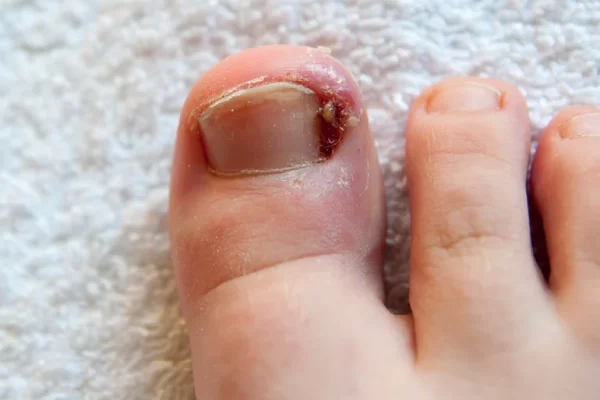It is highly probable that you are one of the millions of Americans who suffer from GERD, or gastroesophageal reflux disease, as it is estimated that as many as one out of every five Americans do experience this disease to some extent. Gastroesophageal reflux disease occurs when there is a malfunction with the lower esophageal sphincter. This is a valve that typically closes to separate the bottom of the esophagus from the top of the stomach. When this valve malfunctions, the acid from your stomach is able to come up into the esophagus causing a burning or tingling sensation.
There are many mild to moderate short-term symptoms of GERD, which include heartburn, dry cough, difficulty or pain swallowing, and sometimes difficulty catching your breath. If you’re like me, you put off going to the doctor until you practically have to crawl there. However, it is important that you seek the counsel of your physician if you experience any of the previously mentioned symptoms with any sort of regularity, especially if it can’t be controlled by non-prescription medications. Most of the time GERD can be well controlled by diet or medication changes but if GERD is allowed to go untreated, the symptoms can progress to severe illnesses.
What Are Some Of The Potentially Severe Complications Of GERD?
Stomach acid is extremely corrosive even to our own tissue. In fact, our stomachs have epithelial cells that excrete a bicarbonate solution to prevent our stomach from being eaten by our own stomach acid. I mean this stomach acid can break down a number of metals, so think about what it can do to the tissue lining of your esophagus. Eventually, the irritation of this strong of an acid on the soft esophageal lining will lead to the lining becoming inflamed, which is referred to as esophagitis. Inflammation is technically a sign that your immune system is responding to a foreign body or irritation but, in this case, your immune system can’t eliminate your gastric acids. This means that the inflammation will likely just lead to additional uncomfortable symptoms such as an itchy throat or difficulty swallowing.
If the GERD continues to go untreated, it is likely that an ulcer will develop along the esophageal lining. An ulcer will also mean discomfort in that it will increase the amount of coughing you experience and will be a source of pain. However, a main concern with ulcers is blood loss whether the loss is by coughing or swallowing. Blood loss can lead to anemia and weakness, as well as lead to digestive problems. If you begin to cough up blood or notice that your stools are dark, these are signs of blood loss and you need to seek treatment. Some people with esophageal ulcers also report experiencing a strange taste or loss of appetite.
Over time, it is possible for the tissue to become so scarred that it forms what are known as strictures. Generally, the scar tissue is less flexible than your esophageal lining should be and can even narrow the esophageal lining. Strictures are rare when compared to esophageal ulcers but they should be taken seriously because they can lead to life-threatening complications with swallowing. These symptoms can include aspiration, chest pain after eating, and unintended weight loss. Esophageal strictures typically require more aggressive treatment such as extreme dietary restrictions and surgery.
Barrett’s Esophagus And Beyond
Barrett’s Esophagus, or BE, is a condition in which the lining of the esophagus actually turns into tissue that mimics intestinal lining. This occurs because of the long term irritation and inflammation associated with untreated GERD. The symptoms of Barrett’s Esophagus are extremely similar to the symptoms of GERD in general and include heartburn, coughing, difficulty swallowing, and occasional chest pain. It is important to continually see a physician regarding your GERD so that they can monitor changes in your condition, especially side effects of some heartburn medications, and you can consider filing for a stomach cancer lawsuit.
The main reason that Barrett’s Esophagus is a concern is because it increases your risk of developing esophageal cancer. It is believed that Barrett’s Esophagus increases cancer risk because of the tissue changes associated with the disorder. These tissue changes can include abnormalities in cell growth, which can multiply to create a cancerous region. The symptoms for esophageal cancer are also almost identical to the symptoms of GERD so you can’t rely on symptomatic changes to tell you when you need to be screened. If you have been diagnosed with Barrett’s Esophagus, you’re physician will usually set you up to regularly be screened for cancerous or precancerous cells.
Where To Start Getting Treatment For GERD
If you are experiencing any of the symptoms associated with GERD, it is clearly important to begin treatment sooner rather than later. There are many physicians with Becker Ear, Nose, And Throat Center that can assist you in the process of diagnosing the problem and treating it. Dr. Kenneth Rosenstein, MD is a board certified otolaryngologist who also holds a Master’s in Speech Language Pathology. He professionally serves patients with a number of ear, nose, and throat problems including swallowing difficulties. A more complete professional biography for Dr. Rosenstein is available here: www.beckerent.com.





